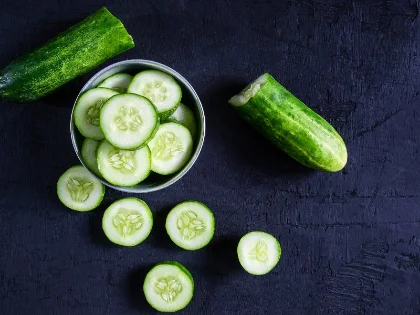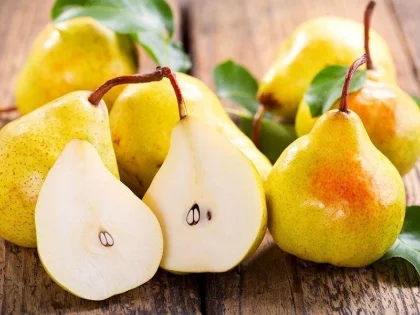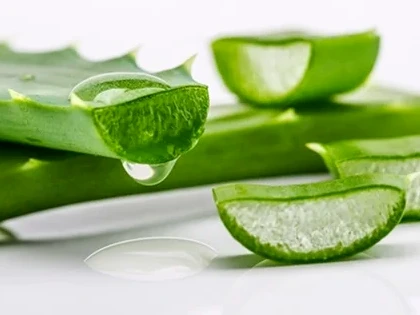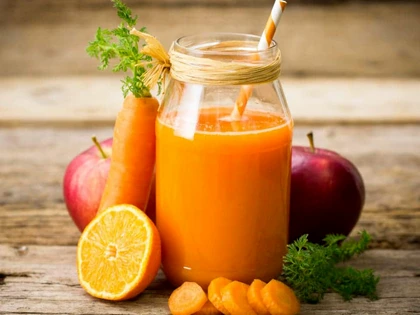Cucumbers Are No Good?
Because they are naturally low in calories, carbohydrates, sodium, and fat, cucumbers are a healthy snack. Additionally, they provide fiber, which can help you feel full after eating. Vitamin K, necessary for bone health and blood clotting, is found in cucumbers. It also contains a large amount of lignans, which are antioxidants that can help stop heart disease and some types of cancer.
1. They contain many calories.
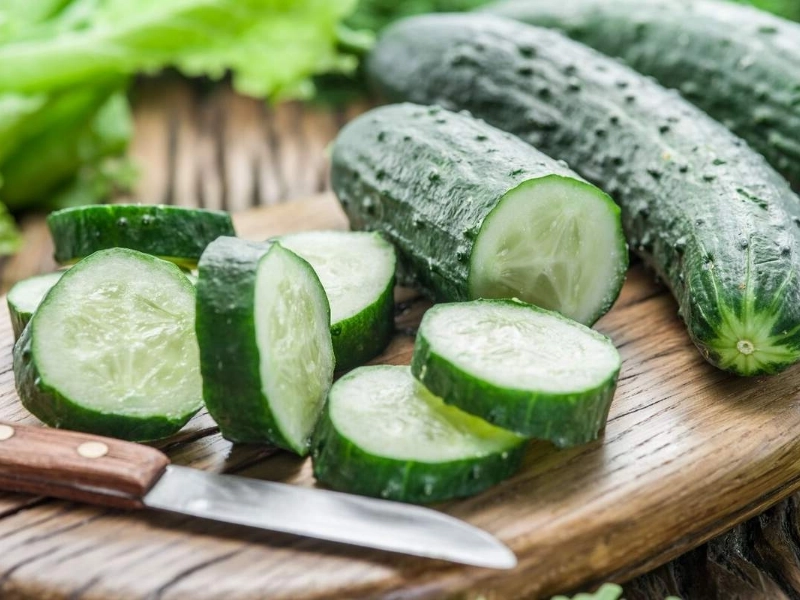
2. They contain a lot of sodium.
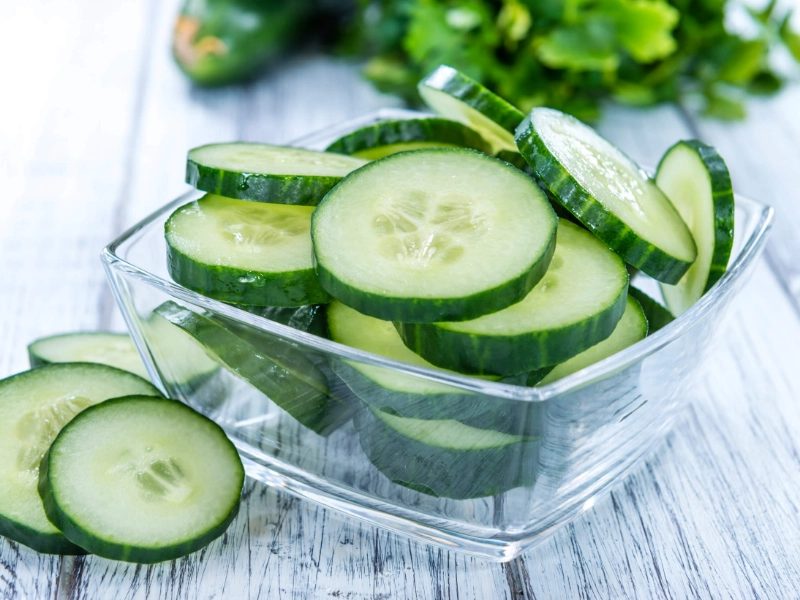 Compared to a drink, a cucumber has substantially less sodium (less than two grams) than a soda. Because excessive sodium consumption can lead to high blood pressure, this is crucial. Additionally, it can cause dehydration, which is dangerous.
In half a cup of sliced cucumber you can find about two grams of carbohydrates and almost ¾ of a gram of fiber. Due to its low glycemic index and 0.9 grams of natural sugar, it is unlikely to raise blood sugar levels.
Vitamin K, found in cucumbers, is beneficial for bone health. In addition, they contain many antioxidants, particularly lignans, which function as scavengers to reduce oxidative stress. The body's reaction to cellular damage is called oxidative stress and can lead to disease.
Vegetables that go well in salads, sandwiches, and smoothies are cucumbers. They are an excellent source of vitamins A, C and K, as well as potassium. In addition, they contain high levels of antioxidants such as quercetin, zeaxanthin and lutein. These nutrients help in the prevention of heart disease, digestive problems and aging.
Compared to a drink, a cucumber has substantially less sodium (less than two grams) than a soda. Because excessive sodium consumption can lead to high blood pressure, this is crucial. Additionally, it can cause dehydration, which is dangerous.
In half a cup of sliced cucumber you can find about two grams of carbohydrates and almost ¾ of a gram of fiber. Due to its low glycemic index and 0.9 grams of natural sugar, it is unlikely to raise blood sugar levels.
Vitamin K, found in cucumbers, is beneficial for bone health. In addition, they contain many antioxidants, particularly lignans, which function as scavengers to reduce oxidative stress. The body's reaction to cellular damage is called oxidative stress and can lead to disease.
Vegetables that go well in salads, sandwiches, and smoothies are cucumbers. They are an excellent source of vitamins A, C and K, as well as potassium. In addition, they contain high levels of antioxidants such as quercetin, zeaxanthin and lutein. These nutrients help in the prevention of heart disease, digestive problems and aging.
3. They contain a lot of sugar.
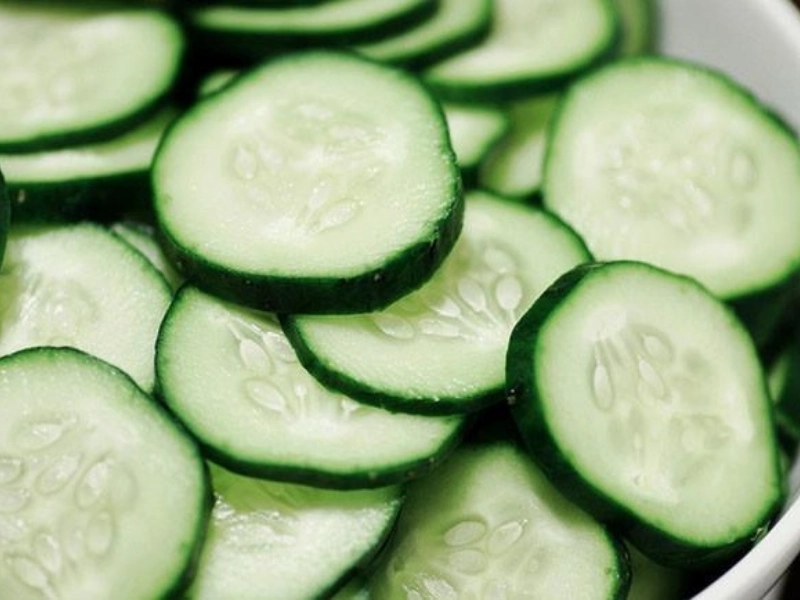 Cucumbers are a good natural source of sugar. It is usually used to prepare foods such as cucumber relish, pickles, and gherkins. It is also the main component of a wide variety of drinks and salad dressings. Cucumbers naturally contain sugar, which can be transformed into other minerals such as potassium and vitamin A. This also has implications for the body's energy levels.
Due to their low glycemic index, cucumbers are beneficial for people with diabetes. Additionally, because they are non-starchy vegetables, they have little or no carbohydrates. For diabetics, this is crucial as carbohydrates increase blood glucose levels.
A nutritious complement to any diet are cucumbers. They are abundant in potassium, vitamin K, folic acid, vitamin C and other vitamins and minerals. They are also a great source of nutritional fiber. Eating more cucumbers can help you avoid high blood pressure and lower cholesterol. They are also a great source of lignans and other antioxidants. Phytochemicals called lignans have been shown to reduce the risk of heart disease and some types of cancer.
Cucumbers are a good natural source of sugar. It is usually used to prepare foods such as cucumber relish, pickles, and gherkins. It is also the main component of a wide variety of drinks and salad dressings. Cucumbers naturally contain sugar, which can be transformed into other minerals such as potassium and vitamin A. This also has implications for the body's energy levels.
Due to their low glycemic index, cucumbers are beneficial for people with diabetes. Additionally, because they are non-starchy vegetables, they have little or no carbohydrates. For diabetics, this is crucial as carbohydrates increase blood glucose levels.
A nutritious complement to any diet are cucumbers. They are abundant in potassium, vitamin K, folic acid, vitamin C and other vitamins and minerals. They are also a great source of nutritional fiber. Eating more cucumbers can help you avoid high blood pressure and lower cholesterol. They are also a great source of lignans and other antioxidants. Phytochemicals called lignans have been shown to reduce the risk of heart disease and some types of cancer.
4. They have a lot of fat.
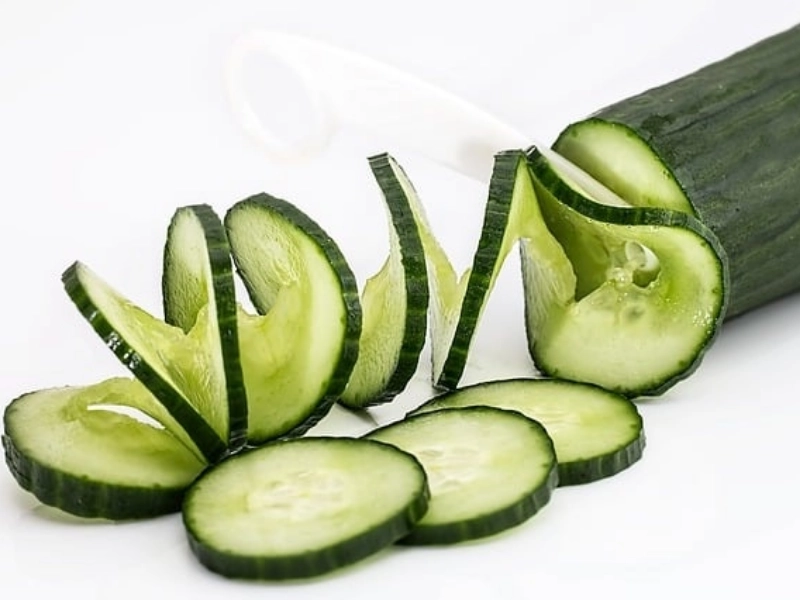 Because they are low in calories, cucumbers are a fantastic snack for anyone looking to cut their calories. Plus, they are high in fiber, which makes them filling and can help combat unwanted cravings. Cucumbers can be eaten raw as a crunchy snack or added to a salad, or pureed to make cold drinks.
Cucumbers are believed to be a tasteless vegetable, but they actually contain phytonutrients and antioxidants that can reduce the chances of developing several malignant diseases. They also contain a lot of vitamin C, which strengthens the immune system and fights oxidative stress, which can accelerate the aging process and cause disease.
Since they are 96% water, cucumbers are a great food for staying hydrated. Due to their inherent antacid qualities, they may also help in the treatment and prevention of heartburn. Additionally, potassium, which can help reduce blood pressure and sodium-induced fluid retention, is abundant in cucumbers.
Because they are low in calories, cucumbers are a fantastic snack for anyone looking to cut their calories. Plus, they are high in fiber, which makes them filling and can help combat unwanted cravings. Cucumbers can be eaten raw as a crunchy snack or added to a salad, or pureed to make cold drinks.
Cucumbers are believed to be a tasteless vegetable, but they actually contain phytonutrients and antioxidants that can reduce the chances of developing several malignant diseases. They also contain a lot of vitamin C, which strengthens the immune system and fights oxidative stress, which can accelerate the aging process and cause disease.
Since they are 96% water, cucumbers are a great food for staying hydrated. Due to their inherent antacid qualities, they may also help in the treatment and prevention of heartburn. Additionally, potassium, which can help reduce blood pressure and sodium-induced fluid retention, is abundant in cucumbers.



